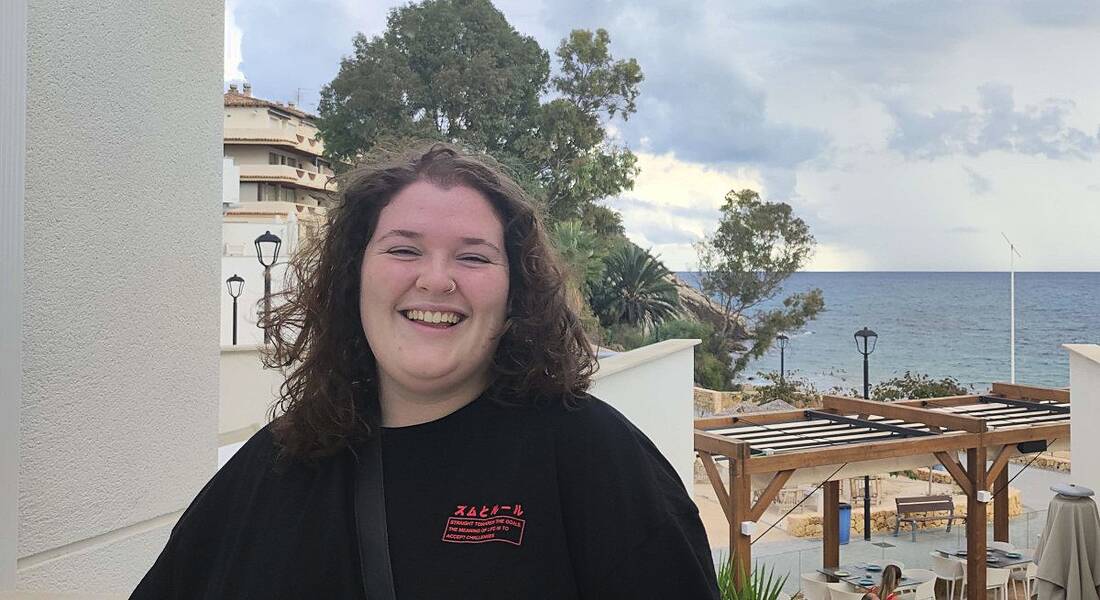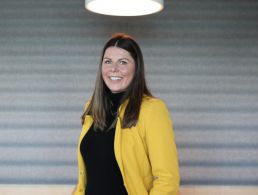BT Ireland’s Moya Clarke discusses her role as a network operations engineer and how she ended up in engineering.
Since 2021, Moya Clarke has worked as a network operations engineer at BT Ireland. Prior to joining BT Ireland, Clarke graduated from Technological University Dublin with a degree that focused on control and communications engineering. Alongside her role at BT, she is currently studying for her Cisco Certified Network Associate qualification.
‘The main takeaway from my degree was developing critical and methodological thinking’
What drew you to the TUD engineering degree?
I was drawn to general entry engineering due to its versatility and the opportunities it could provide me with after graduation. I hadn’t the faintest idea of what I wanted to do when leaving school and was told that an engineering degree could provide me with transferable skills for the future. I wasn’t the strongest student in my maths class for example, but I always had a curiosity for new things – or finding out how they worked. From general entry engineering, I began narrowing down my focus by eliminating what didn’t appeal to me and kept going from there and ended up with a degree in electrical engineering.
The main takeaway from my degree was developing critical and methodological thinking. It was a great launchpad for structured problem-solving skills and how to approach difficult issues.
It prepared me for working in a team and how to push through with difficult problems. It also introduced me to the concept of work-life balance, which is a much-needed life skill.
What expectations did you have before you began?
I’m not sure what expectations I had before starting! I attended an all-girls secondary school and didn’t come from a technical background so started my degree almost completely blind to the engineering world. I felt out of my depth when I first started in college. My peers knew all sorts of wild and wonderful things I had never come across before – anything from truth tables to T-squares, solid state to SolidWorks. It was a shock to the system for sure.
Can you describe a typical day?
It feels like there’s no such thing as a typical day when you’re working in BT’s Network Operations Centre (NOC). We work 24/7, 365 days a year in 12-hour shifts. There are several duties in our NOC – being the single point of contact for our team, monitoring our network and BT point of presence sites, troubleshooting customer and internal faults (both domestically and internationally) and service delivery assurance.
Every shift, we’re assigned different duties meaning that no two days are the same, just as no two faults are the same. I find my job really interesting, as you never know what alarms or faults will come into you that day. I think my day-to-day role in the NOC has exceeded my expectations, the range of work you encounter keeps it exciting, interesting and fresh.
Has there been anything that has surprised you about working in this industry?
The range of work that’s available out there to someone early in their career. Being in the NOC, I have contact with people all over the business in both Ireland and abroad, working on every sort of problem you can think of. I have exposure to everything from data centre maintenance, tech bridge organisation and hands-on work, all while working in a multivendor environment.
I have the opportunity every day to expand on both my soft skills and my technical skills, and have open and helpful co-workers who are candid about what their role entails, which is great for career development. We are constantly encouraged to upskill and are given the support we need to do so.
What advice would you give to someone thinking about applying for an engineering degree?
It’s definitely hard work to complete an engineering degree – don’t be mistaken! At the same time, you don’t have to be a perfect student in order to get one. What I was told when I began studying still stands true – it’s a versatile degree. Put yourself out there and you’ll find support and friends along the way that make the path easier. Try your best and see where that gets you!
What types of engineering projects do you work on?
My team and I work in operations, which means our work is not project-focused but more of an ongoing effort. An evergreen part of our work is continuous improvement – for ourselves, other teams within the organisation and our clients. This is tracked through our shared weekly forum and has been a wonderful tool for change. While it does have the purpose of streamlining our processes, tools and services, it is really satisfying to see the change and impact that you are making within your team and business.
What engineering skills do you use on a daily basis?
Communication with customers and cross-functional teams, technical problem solving, incident management and critical thinking are definitely skills I use on a daily basis. The only aspect that surprised me was how valuable my non-engineering work experience would prove to be. I had felt inadequate in the past, as I believed in order to be a good engineer all of your skills had to be technical. I’ve learned that having a range of soft skills is truly an advantage, especially in a role like mine where you have to put yourself out there and be proactive in your problem solving.
What are the hardest parts of engineering, and how do you navigate them?
I think the hardest part of my job is maintaining my energy over a 12-hour shift to provide the best service to our clients we possibly can. I find that the best way around this issue is open communication. This is very encouraged in my team so I have no problem communicating with my teammates.
If I am not feeling the best that day or if I am having an issue in resolving a fault, I can ask for support from my team. Taking 10-minute breaks throughout the day and looking after yourself outside of shift work is also vital to making sure I can give my best in work.
10 things you need to know direct to your inbox every weekday. Sign up for the Daily Brief, Silicon Republic’s digest of essential sci-tech news.




